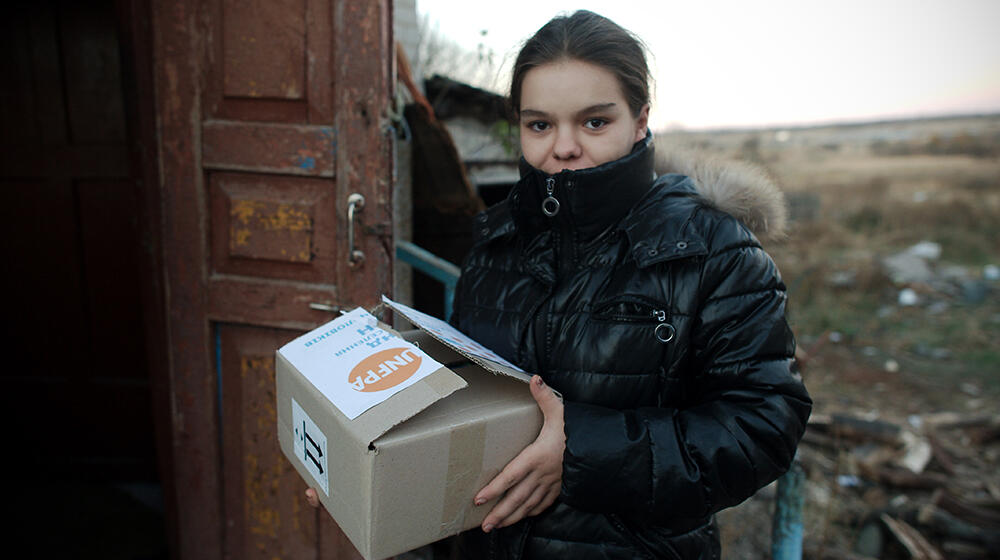As fighting escalates in Ukraine, UNFPA warns of the impacts on women and girls.
UNFPA, the United Nations sexual and reproductive health agency, is deeply concerned about the escalation of conflict in Ukraine. Unless tensions subside in Ukraine immediately, humanitarian needs will dramatically escalate.
UNFPA has been working with partners in Ukraine for decades, expanding access to reproductive health and protection services to some of the hardest-to-reach people. We will stay and scale up the delivery of life-saving programmes to people in need across the country. Our priority remains to ensure that the health, rights and dignity of women and girls affected by the conflict are safeguarded, including their right to give birth safely and to live free from violence.
Our staff are on the ground ready to deliver essential medicines, supplies and services to ensure that sexual and reproductive health care, including comprehensive support for survivors of gender-based violence, is sustained.
For the last eight years, millions of women and girls have lived in the shadow of conflict in eastern Ukraine, which has taken a devastating toll on their well-being and further exposed them to violence and abuse. Peace for women, girls and all people of Ukraine is urgently needed now.
UNFPA echoes the appeal of the Secretary-General for an immediate cease-fire and calls on all parties to respect their international obligations to uphold the human rights and dignity of all people, including women and girls. UNFPA also calls on all parties to refrain from attacking essential infrastructure, including health facilities, and to ensure all humanitarian actors have unimpeded access to deliver services and assistance to those in need.


